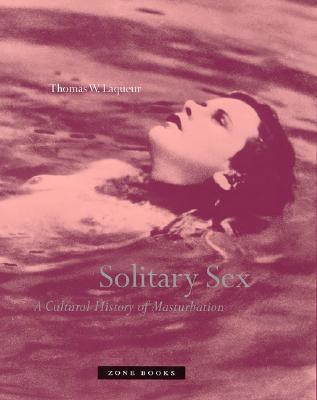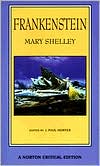Solitary Sex: A Cultural History of Masturbation
At a time when almost any victimless sexual practice has its public advocates and almost every sexual act is fit for the front page, the easiest, least harmful, and most universal one is embarrassing, discomforting, and genuinely radical when openly acknowledged. Masturbation may be the last taboo. But this is not a holdover from a more benighted age. The ancient world cared little about the subject; it was a backwater of Jewish and Christian teaching about sexuality. In fact, solitary sex as...
Search in google:
A historical account of masturbation as a moral issue and cultural taboo.The New YorkerHow did masturbation, arguably the safest sexual act, come to be seen as a moral aberration with ghastly physical effects? Laqueur, a historian at Berkeley, traces this view to the anonymous publication, around 1712, of a tract entitled "Onania." The dangers of onanism became a key concern of Enlightenment thinkers, whose preoccupation with social order made them see this inherently private activity as self-abuse in the most literal sense. (Kant thought that it was worse than suicide.) Laqueur is persuasive, but his belief that masturbation was not a moral problem before the eighteenth century leaves him with a lot of medieval Christian guilt to explain away. An engaging writer, he has a penchant for with-it language -- masturbation is both "the first democratic, equal-opportunity would-be vice" and "the crack cocaine of sexuality" -- and in the later part of his book he devotes too much attention to transgressive artists whose cultural importance is marginal. His assertion that after the "post-porn" performance art of Annie Sprinkle masturbation "will never be the same" seems, to say the least, unlikely.
Acknowledgments7IThe Beginning13IIThe Spread of Masturbation from Onania to the Web25111Masturbation Before Onania83IVThe Problem with Masturbation185VWhy Masturbation Became a Problem247VISolitary Sex in the Twentieth Century359Notes421Index497
\ From the Publisher"... the best sort of contemporary historical scholarship, combining historical detective work and detailed explication with a long view." Jeffrey Weeks Times Higher Education Supplement\ Zone Books\ "This is no cute 'n' frothy pop-cultural round-up: it's a very scholarly work...."T. Glyde Time Out\ Zone Books\ \ \ \ \ \ Los Angeles TimesThomas Laqueur, in a compendious and witty analysis of the subject, would have us know that masturbation had its beginnings too, though on a more global timescale than Larkin's self-scrutinizing view. It was a lot later than you'd think: Laqueur's thesis is that masturbation began in 1712, give or take a year or two. He is not, of course, suggesting that no one had thought of or performed the act of solitary sex before that date, any more than Larkin is implying that human beings had no idea how to get their genitalia together pre-1963. According to Laqueur, masturbation was quite specifically invented as a profound cultural concern in an anonymous pamphlet published in England entitled "Onanism," which coincided with the early days of the European Enlightenment. No coincidence actually, Laqueur says. Cultural historians permit few coincidences. His history searches for the meaning behind the brouhaha caused by "Onanism" — with its bold new claim that masturbation debilitated the body even unto death and the mind to madness — and the bandwagon response to it of quacks, medical men, educationalists, clerics and philosophes alike. — Jenny Diski\ \ \ The New YorkerHow did masturbation, arguably the safest sexual act, come to be seen as a moral aberration with ghastly physical effects? Laqueur, a historian at Berkeley, traces this view to the anonymous publication, around 1712, of a tract entitled "Onania." The dangers of onanism became a key concern of Enlightenment thinkers, whose preoccupation with social order made them see this inherently private activity as self-abuse in the most literal sense. (Kant thought that it was worse than suicide.) Laqueur is persuasive, but his belief that masturbation was not a moral problem before the eighteenth century leaves him with a lot of medieval Christian guilt to explain away. An engaging writer, he has a penchant for with-it language -- masturbation is both "the first democratic, equal-opportunity would-be vice" and "the crack cocaine of sexuality" -- and in the later part of his book he devotes too much attention to transgressive artists whose cultural importance is marginal. His assertion that after the "post-porn" performance art of Annie Sprinkle masturbation "will never be the same" seems, to say the least, unlikely.\ \ \ \ \ Publishers WeeklyLaqueur's Making Sex: Body and Gender from the Greeks to Freud is a classic work in history and gender studies, and a regular on syllabi around the world. In his latest study, the UC Berkeley historian maps out the changing nature of Western culture's ongoing obsession with manual self-pleasuring and its effects. Not surprisingly, masturbation's history is fraught with anxiety, particularly since it was often thought to irrevocably damage its practitioners, both morally and physically. As one nineteenth century medical dictionary warns: "However secret the practice... it leaves an indelible mark." Further back, in the 18th century, when expressions of "imagination, solitude, and excess became newly important and newly worrisome," masturbation was seen as representing a lack of self-discipline, "emblematic of all that was beyond social surveillance." Beginning in the politicized, post-free love 1970s, it became "a way of reclaiming the self from the regulatory mechanisms of civil society and of the patriarchal social order into which the Enlightenment and its successors had put it." In the 1990s, it was a pop culture mainstay, a staple of Something About Mary and Seinfeld jokes. More surprising is the fact that masturbation was of great interest to major writers and philosophers: Laqueur finds Voltaire, Mary Wollstonecraft, Swift, Rousseau, Kant and Whitman all thinking and writing about this "solitary vice." Laqueur calls masturbation both the "first truly democratic sexuality" and the "crack cocaine of sex": at once addictive and readily accessible to all. His writing is free from embarrassment and needless jargon (though it does not shy away from complex formulations of manual sex's complexes), and, with 32 b&w illustrations, it should be a big hit on campus. (Mar. 18) Copyright 2003 Cahners Business Information.\ \ \ \ \ Library JournalAround 1700, masturbation morphed from a minor sociospiritual transgression into a moral-medical horror. Laqueur (history, Berkeley; Making Sex) explains why-better and certainly more exhaustively than previous scholars. As centralized monarchs and the church lost power and the individual assumed new importance in civil society, masturbation was revisioned as the most selfish, antisocial, and dangerous perversion of individualism. Much later, Freud remade masturbation into a temporary, youthful way station for individual socialization. Then after the 1960s, feminism and gay liberation helped engineer a third makeover of masturbation as fundamental for socialized individuals of any age. All three visions coexist uneasily today. Laqueur's penetrating analysis will fascinate social historians and the intellectual public, but his dense, multilayered prose and zest for colorful details make it rough going for readers habituated to popular magazine sound bites. Although lacking an index and somewhat light on recent trends, this work is far more comprehensive and nuanced than its only rival, Jean Stengers and Anne Van Neck's Masturbation: The History of a Great Terror. Recommended for academic and large public libraries.-Martha Cornog, Philadelphia Copyright 2003 Cahners Business Information.\ \ \ \ \ Kirkus ReviewsScholarly examination of the evolution of public perceptions about masturbation, from a threat to the civil order in the early-18th century to a form of cyberspace expression in the 21st. Laqueur (History/Berkeley; Making Sex, not reviewed, etc.) tackles with aplomb what has been called the last taboo. He devotes a long chapter to masturbation's prehistory, noting that it was largely disregarded in ancient Rome and Greece, in Jewish tradition, and in centuries of Christian teaching. As the relationship between the individual and the social order became a paramount concern during the Enlightenment, masturbation was seen as a reflection of modern life's deepest problems. This view was widely disseminated, it seems, with the 1712 publication of an anonymous tract titled Onania, a reference to the Bible's Onan, who "cast his seed upon the ground." Launching a new "disease" and new guilt upon the Western world, Onania railed against the sin of "self-pollution," cited its dire consequences, and touted a cure. As the belief that it caused death, disease, and madness waned toward the close of the 19th century, Freud put a new spin on the subject: masturbation was the lowest, most primitive sexuality, a stage to be passed through in the process of becoming an adult, with a host of problems caused by the failure to do so. This view has been challenged since the 1960s, says Laqueur, by those who champion masturbation as not only healthful but a path to individual autonomy and spiritual self-realization. Feminists touted it as a means of liberation from a repressive heterosexual regime; Internet chat rooms made it the basis for a new kind of sexual sociability. As a cultural historian, Laqueur castsa wide net, snaring Samuel Pepys and Pee Wee Herman, Rousseau and Seinfeld, philosophers and pornographers, Greek urns and contemporary photos. Sheds bright light on an aspect of human behavior hitherto relegated to history's shadows. (32 b&w illustrations)\ \








